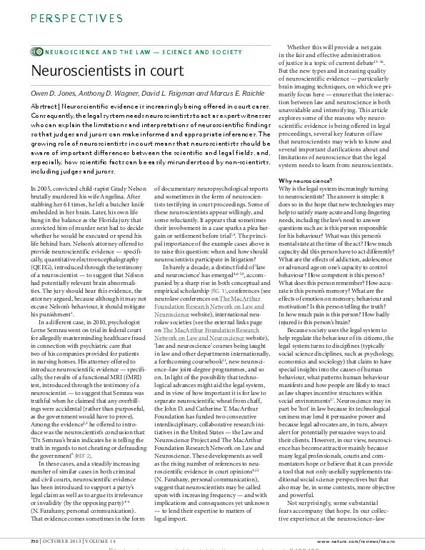
- law and neuroscience; psychology; neurolaw; criminal responsibility; tort liability; evidence; brain; fMRi; expert witnesses; neuroethics; sentencing
Neuroscientific evidence is increasingly being offered in court cases. Consequently, the legal system needs neuroscientists to act as expert witnesses who can explain the limitations and interpretations of neuroscientific findings so that judges and jurors can make informed and appropriate inferences. The growing role of neuroscientists in court means that neuroscientists should be aware of important differences between the scientific and legal fields, and, especially, how scientific facts can be easily misunderstood by non-scientists,including judges and jurors.
This article describes similarities, as well as key differences, of legal and scientific cultures. And it explains six key principles about neuroscience that those in law need to know.
Available at: http://works.bepress.com/owen-jones/26/
